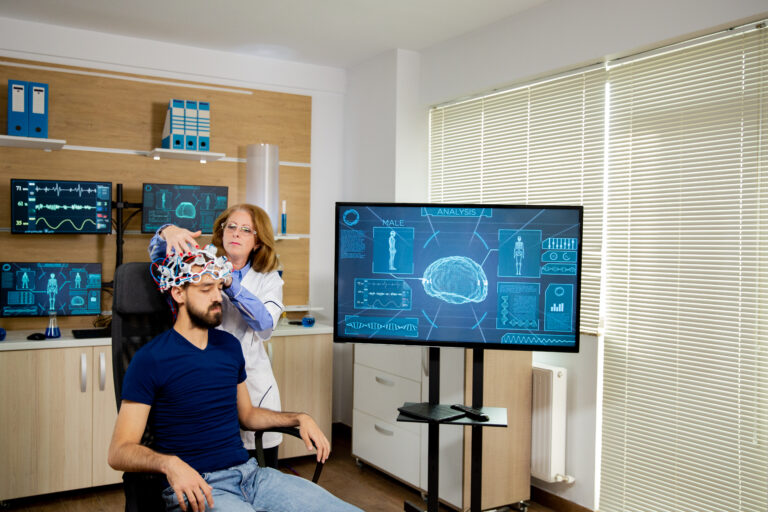An Overview to Chronic Care Management (CCM) Services in Medical Billing
Chronic Care Management (CCM) services represent a significant shift in healthcare delivery, focusing on proactive, coordinated care for patients with multiple chronic conditions outside of traditional face-to-face office visits.
These services, primarily reimbursed by Medicare, aim to improve patient health outcomes, enhance patient engagement, and reduce overall healthcare costs. Effective medical billing for CCM is crucial for the sustainability of these programs.
What are Chronic Care Management Services?
Chronic Care Management (CCM) services consist of periodic administration and management of care to patients with two or more chronic conditions that are likely to last a minimum of twelve months to the end of life, have a high risk of mortality, acute exacerbation, decompensation, or functional decline. The services are largely non-face-to-face and cover a range of activities, including:
- Detailed, patient-centered care planning is necessary for development and maintenance. The plan is used to record the patient’s medical issues, goals, intended interventions, medication management, and coordination with other professionals and community agencies.
- There should be ongoing communication with the patient and other healthcare professionals. There should be telephone calls, secure messaging, and electronic health records-based communication in order to efficiently manage patient needs, provide support, and coordinate care.
- Medication management: It includes medication reconciliation, adherence, and resolution of any issue related to it.
- Care transitions coordination entails referral coordination, follow-up from emergency department visits or hospitalization, and coordination between various healthcare settings.
- Patient education and self-management assistance is all about empowering the patient with the information and skills to participate in their care.
- Ongoing access to care: Patients should be provided access to a clinical staff person or healthcare provider to address emergent needs, but it is not required that a physician be on call 24/7.
Eligibility for CCM Services
Per CMS to qualify for CCM services, the following must be true for patients to get Medicare financial support—
- Having two or more long-term chronic conditions expected to last > 12 months or until death. These conditions need to be significant enough in nature, where a patient is expected to die, deteriorate to acute exacerbation, or decompensate/decline functionally.
- The patient has had an initial visit with the billed provider, e.g., annual wellness visit/initial preventive physical examination or a complete Evaluation and Management (E/M) visit This visit is to be performed only for new patients or patients not seen in the last year.
- Informed consent (to receive CCM services, i.e., what is included in these services and the cost-sharing implications under which, typically, there is a 20% copay).
- A provider can only bill once each month for CCM services on any given patient.
Medical Billing for CCM Services: Key CPT Codes
CPT codes CCM services are based on specific Current Procedural Terminology (CPT) codes to reflect the range and complexityof services offered to beneficiaries of each encounter. The current CPT codes for CCM are :
- CPT — 99490: At least 20 minutes of clinical staff time directed by a physician or other qualified healthcare professional for chronic care management per calendar month. Medicare typically reimburses around $42 for this code.
- CPT — 99439: Chronic care management services; additional 20 minutes of clinical staff time directed by a physician or other qualified health care professional, per calendar month (see separately for each additional procedure). Applies when >20 minutes of non-complex CCM delivered.
- CPT — 99487: Additional Complex chronic care management —. At least 60 minutes of clinical staff time, directed by a physician or other qualified healthcare professional, each calendar month with moderate to high complexity medical decision making.
- CPT — 99489: Additional chronic care management — clinical staff directed at least 30 minutes (99487-Code) per calendar month (bill separately from code 99487). Medicare pays approximately $76.50 each time this 30 minutes has been charged under 99489 options.
- CPT — 99491 — Chronic care management services, a minimum of 30 minutes of time from physician or other qualified healthcare provider per month. I use this code when the CCM services are provided by the attending physician or qualified health professional.
Requirements for Billing CCM Services
To bill correctly and in accordance with regulations, providers must meet a number of primary requisites for the use of CCM services:
- Initial Visit: There is no qualifying face-to-face service allowed under CCM unless the patient is new or had seen provider in > 1 yr.
- Patient consents: Both oral and written consent must be obtained from the patient, explaining the services to be rendered, cost-sharing and giving the patient the right to stop services anytime.
- Comprehensive Care Plan: Thorough Care Plan By establishment of a complete care plan in EHR, patient-level Both members of the care team should have access to this plan.
- 24/7 Access: The patient must have 24/7 access to care through the practice, either directly or via agreements with other services.
- EHR Certification: All relevant patient health information should be logged in a certified Electronic Health Record (EHR) system—this includes only the CWP, patient interactions & time spent on CCM activities.
- Minimum Time Requirements: The billed CPT code consists of only up to the minimum time threshold for non-face-to-face clinical staff time or qualified healthcare professional time spent on CCM activities during the calendar month.
- Time Tracking and Documentation: It is necessary to keep a precise log of this time.
- Unique Services Not Duplicated: CCM services cannot be claimed at the same time as other care management services for the same patient during the same calendar month if they overlap. But CCM can often be done together with Remote Patient Monitoring (RPM) as long as for each modality a separate criteria are met for billing.
- One Billing Practitioner per Month: Only one physician or qualified healthcare professional can bill for CCM services for a specific patient in a given calendar month.
The Billing Process for CCM Services
The following are the general steps to submit claims for CCM services to Medicare (CMS):
- Collect everything you need: Patient demographics, insurance info, CPT code for the service, and every CCM activity done and how much time you have dedicated to it.
- Collect All the Data: This will include patient information, insurance details, and what provider was doing what under CCM service claim — as well each CCM task performed and the time involved.
- Get the correct claim form: CMS-1500 is the usual form that physicians and other professionals use for Submit the claim:
- Submit your claims: This is a commonality; most require that claims be submitted electronically to Medicare.
- Survey your claim results: review the status of submitted claims in terms of processing and payment.
- Dealing with claim denials: Review each claim denial and why, as well as what action needs to be taken. i.e.: resubmit with new/additional info Location, coding and documentation are everything to keep claim denials at bay and get proper payment for your CCM services. Most practices find it is helpful to work with full-service, CCM billers to help decode the nuances and ensures compliance.
Benefits of CCM for Patients and Providers
There are a lot of advantages for both patients and providers in terms of offering and billing for CCM services
For Patients:
- Customized care plans only: Designed to their individual circumstances or objectives.
- Greater access to healthcare providers: regular phone calls with a presence.
- Better care coordination: Smooth handoffs and communication among providers.
- Improved medication management: Decrease of mistakes and adherence improved.
- Engaged patients: Give the patient power.
- Hospital admissions and ER visits lower: Because a proactive strategy for preventing indolent episodes.
Better health outcomes and quality of life. - Continuation of Support and Education to effectively handle their chronic illnesses.
For Providers:
- Care Coordination: Stronger care coordination and communication, which can mean more safe, patient-focused care delivered efficiently and effectively.
- Enhanced patient-physician partnership: Better engagement and compliance.
- More practice income: Compensate for non-phc aspects of care management.
- Better control on chronic conditions: Resulting in better patient outcomes and dissatisfaction.
- Participate in value-based care models: CCM is designed to align with the value focus.
- Increased job satisfaction for healthcare teams: A sense that the providers can truly facilitate total care.
- Increased preventive care and early detection: Catching problems before they develop, or creating pathways for health issues
Takeaway
- Billing, coding, and A/R management are key parts of Right Medical Billing for CCM services to get adequate reimbursement by providing utmost accuracy in every sense of billing, coding, and accounts receivable.
- This is the process of appropriate time-based and complexity-based coding on comprehensive documentation for the like of 99490, 99487 and below codes in the tribe.
- Submit a clean claim; do not deny the claim for timely filing to reduce denials. Active accounts receivable is punctual follow-up on unpaid claims, good denial management, and proper payment posting.
- Establishing solid protocols such as ongoing staff training on new guidelines, using technology for finding billing mistakes and tracking, and maintaining open lines of communication with payers are some of the ways that drive the maximum revenue and sustainability of CCM programs.



